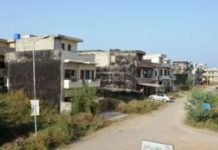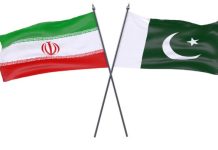Munir Ahmed
Pakistan is a graveyard of national policies. The recently buried one is the ‘Food security’ that was finalized and approved in 2018. Almost three years on, the stakeholders are waiting for any action on it. The participants of the recently organized conference by Awaz CDS and Pakistan Development Alliance, VSO-Pakistan and UKAid on “Food Security and Sustainable livelihood in Pakistan” have shown grave concerns on the policy dusting shelves. They demanded immediate kick off the implementation and letter and spirit.
The stakeholders voiced numerous challenges related to food, agriculture, and livelihoods and shared their recommendations for the federal and provincial governments in somber. They believe that on their charter of demand, the real and practicing smallholder women and men farmers should be included in the government committees at provincial and federal levels raise their voices to safeguard their rights for better production, fair prices and sustainable livelihoods; food and nutrition security should be brought as enforceable fundamental right in the constitution of Pakistan; and while the nutrition is important for people, it should be incorporated in all the programs of agriculture and food security.
No doubt, the government should initiate training and support for kitchen gardening in rural and urban areas for improved nutrition. Indeed it’s true that rising cost of production is negatively impacting small farmers. The provincial and federal governments shall monitor erratic price of inputs for the benefit of farmers. Substandard quality of seeds and inputs negatively impact agricultural production and farmers livelihoods, the relevant government departments shall monitor quality issues of agricultural inputs, and also ensure fair price of agricultural products to ensure sustainable livelihoods. The small farmers shall receive concessionary loans and crop insurance in all provinces and regions.
The conference emphasized the extension departments shall be revitalized to provide required technical support to small farmers; wages of agriculture workers shall be implemented according to the national or provincial minimum wage rates whichever is higher; the farmer men and women shall be supported through trainings and financial resources to initiate value addition of their crop, vegetables, fruits, livestock and other agricultural products.
The Khyber Pakhtunkhwa and federal governments shall have special emphasis on the newly merged districts of FATA in Khyber Pakhtunkhwa to explore potential agriculture and food production, and micro finance support shall also be extended to the natives of these areas. Women at the moment are not the focus in the agriculture system despite being in the heart actually, so women farmers shall be prioritized from university curriculum to research up to extension system. Government shall induct women staff to ensure timely and quality extension support for women farmers. Women should receive capacity building and financial support for crop, livestock, vegetable production as well as poultry and goat farming.
Sindh Women Agriculture Workers Bill 2019 is still pending. It shall be implemented in letter and spirit. All other provinces shall also ensure the replication of the similar legislations in their respective provinces and regions. Special programs should be included in government policies to address drought related situations in crop, livestock and all forms of agricultural production. Storage dams should be constructed to ensure food and agricultural production in drought hit and flood prone areas in all provinces. Livestock training and mobile livestock veterinary services should be provided in all the provinces. Women should also be given on farm training on livestock, goat and sheep and poultry farming to empower the marginalized women.
Climate change is the worst threat to national water and food security. Agriculture and related policies and programs shall integrate climate change resilience from curriculum to research and up to extension systems. Government shall conduct scoping studies to assess climate related risks and related measures in all provinces and regions, and strengthen efficient water utilization for agriculture in all provinces. Crop and food diversity is important for nutrition and climate resilience. This should be encouraged through a variety of crop cultivation and naturally bred bio-fortified seeds. Pakistan has 11mhc cultivable waste. These marginal lands should be developed into new areas to produce agriculture and food crops.
Shandana Gulzar, Convener of the Parliamentary Sub-Committee on Agriculture, feels determined to provide opportunities to young people and women to engage in food productions and processing systems and mechanisms in the country. She believes that food security policy 2018 shall be implemented in letter and spirit while taking all the provinces and other related stakeholders on board equally. “We will encourage provinces to develop their own food security policies in accordance with the national food security policy 2018. Before the 18th constitutional amendment in 2010, it was possible to have uniform policies for the whole country, however now provinces have their own agricultural policies too. They need to sync their agricultural policies with that of national food security policy if there is any challenge in this respect.”
MNA Riaz Fatyana- Convener, National Parliamentary Task Force on SDGs shared that the government has initiated many social protection initiatives to ensure food security of poor and marginalized communities under Ehsaas Program including Rashan Cards. The program will be kicked off soon. He also shared that small land holders and farmers will be given Kissan cards to enhance their productions. Government is also encouraging Agriculture Chambers and the first ever agriculture chamber will be initiated in Lahore soon.
Zia ur Rehman, National Convener of Pakistan Development Alliance, believes that food security should be considered as a basic human right. Pakistan is also a signatory of many international treaties and conventions including UDHR, ICESCR, CRC, CEDAW, SDGs and Voluntary Guidelines to support the progressive realization of the right to adequate food for all citizens. These commitments demand that Pakistan should recognize food and nutrition security as fundamental human rights; however this is pertinent to mention here that Pakistan’s Constitution has yet to recognize the right to food for all.
Wakeup Pakistan government before it’s too late to secure food for 220 million people. Your slow response or no response would lead to a disaster we could never imagine.
The writer is a freelance journalist and broadcaster, Director Devcom-Pakistan, a policy advocacy and outreach think tank in Islamabad. His email: [email protected] Twitter Handle: @EmmayeSyed












